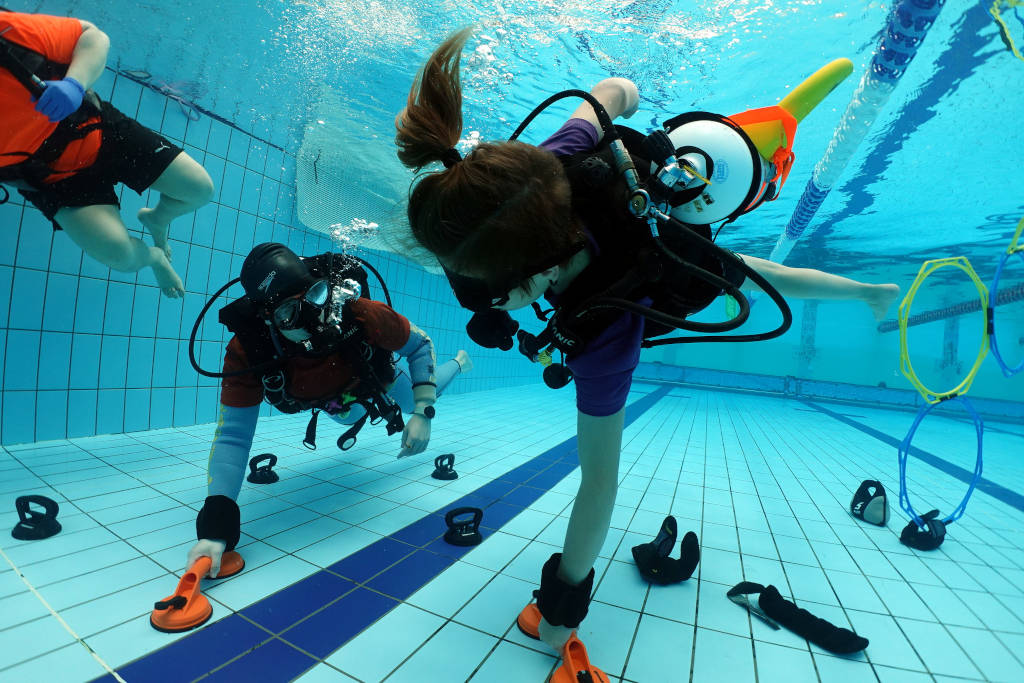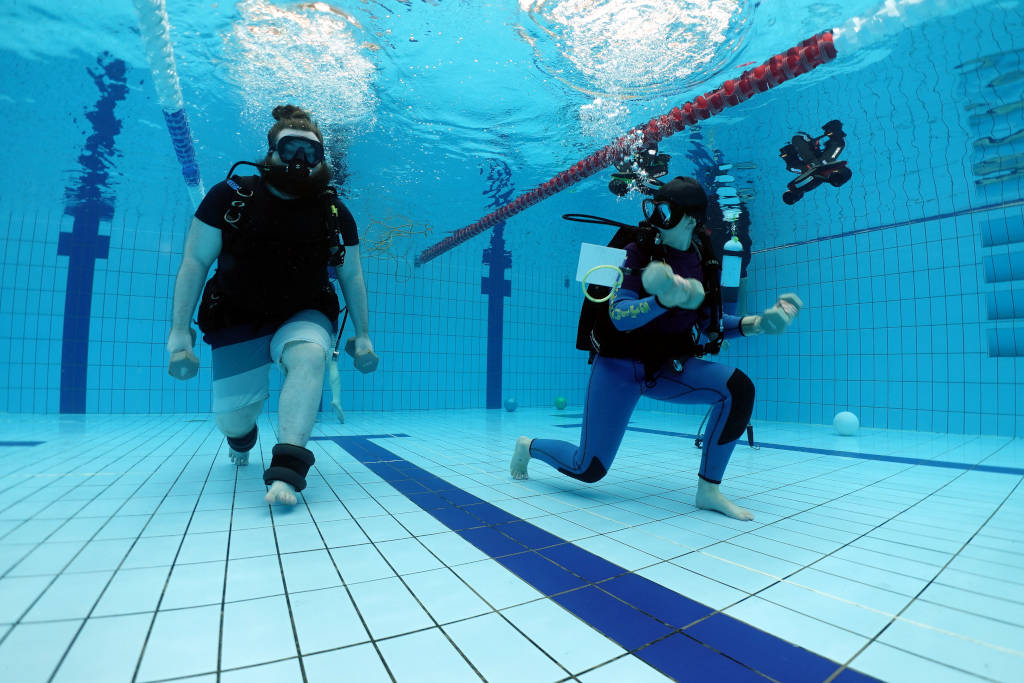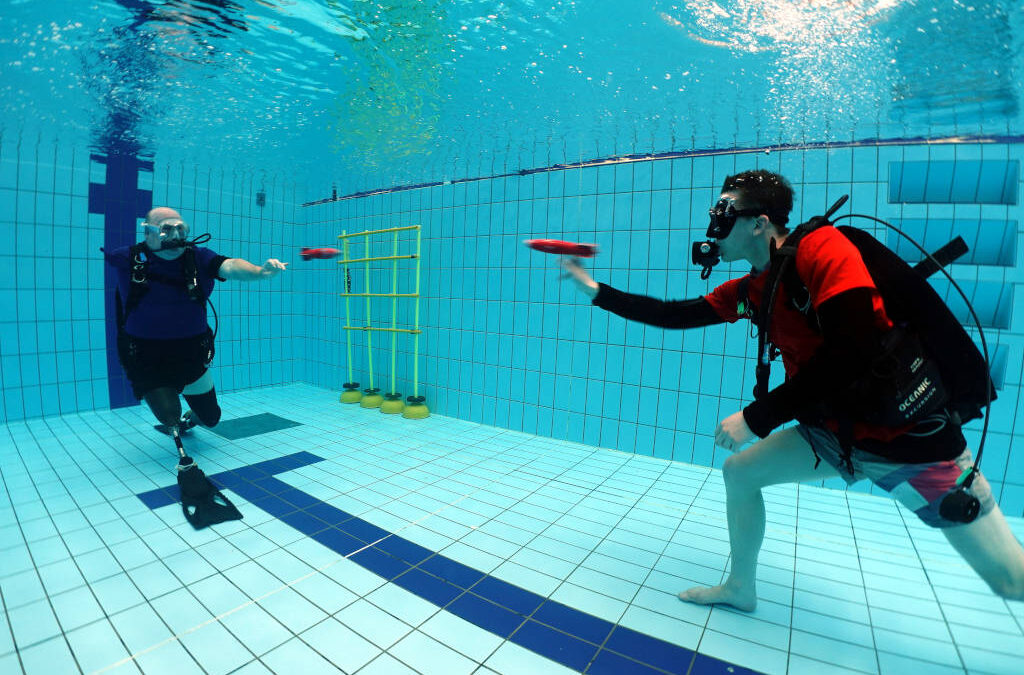A South Australian disability-led company that supports people living with disabilities and injuries to exercise underwater to help improve their physical, social, and mental health will soon begin clinical trials in partnership with the University of South Australia (UniSA) and leading health clinicians.
With an estimated cost of $700,000, the trials will be the first of their kind in Australia to apply scientific rigour to test the health benefits of Immersion Therapy for people with significant disabilities caused by brain and spinal injuries.
The trials will be conducted by teams of experts, including UniSA exercise physiologists and researchers, and supported by specialists in Rehabilitation, Pain and Hyperbaric medicine.
Adelaide-based company and National Disability Insurance Scheme (NDIS) provider Determined2 announced the launch of the clinical trials, following the decision of South Australia’s Lifetime Support Authority (LSA) to award the UniSA-led team a $280,000.00 research grant.
The remaining cost of the study will be provided in-kind by leading academics, medical experts and the Determined2 leadership team.
“We are so grateful and excited to have this significant grant from LSA,” Determined2 managing director and founder of Immersion Therapy, Peter Wilson said.
“Together with substantial in-kind contribution from project leadership, management, and advisory teams of academics, doctors, health professionals and participants, this gives us the opportunity to provide that crucial evidence base to support the work we’ve been doing for the past seven years.”
Determined2 is a registered NDIS provider, which has won several disability sector and Telstra business awards for its innovative work supporting people with disabilities and life changing injury.
It developed and delivers Immersion Therapy at the Adelaide Aquatic Centre, with plans to expand the service nationally and internationally currently underway.
Participants with a wide variety of disabilities and injuries use scuba equipment to exercise underwater for up to 45 minutes with guidance from specially trained Accredited Exercise Physiologists.
Underwater, participants who find it difficult to walk on land can walk, swim and even dance. Many participants report improved movement, reduced pain and enhanced mental and social health after their sessions.

UniSA Associate Professor in Clinical Exercise Physiology, Dr Kade Davison leads the research team at UniSA, which will oversee the clinical trials.
He has been studying the benefits of Immersion Therapy for the past five years.
“What has come through strongly in our observations is that participants have a positive physical benefit with reduced pain and greater mobility, but they also have benefits on their mental health, with managing anxiety and depression,” Dr Davison said.
“We have seen participants who suddenly were reporting great improvements in land-based measures like the distance they were able to walk and their walking speed.
“We want to measure these outcomes. To do that properly, we need a rigorous controlled study.”
Dr Davison says South Australians with recent brain or spinal injuries who are returning home after time in hospital will have the opportunity to take part in the randomised controlled trial.
“We are focusing on the time when patients are transitioning from inpatient to outpatient, which is a crucial part in people’s rehabilitation journey,” he said. “Therapy and support at this time can have a significant impact on someone’s future as they return to life in their community.”
Clinicians at South Australia’s Spinal Cord Injury Service (SASCIS) and Brain Injury Rehabilitation Service (BIRS) will support UniSA to recruit participants to take part in the trials.
Dr Adrian Winsor, who specialises in Rehabilitation Medicine, Pain Medicine, Hyperbaric and Diving Medicine, has worked closely with Determined2 from its inception to ensure the therapy was safe for all participants.
“There are a couple of things that make this therapy unique, one is the rigour around making it safe, the other is the process of inclusivity and ease of access for people with various types of impairment to go through medical clearances to participate,” Dr Winsor said.
“When you take gravity away, it allows people greater freedom of movement. They report feeling stronger and more able. It is another way of increasing people’s independence and allowing them to participate in society.
“I think these trials are very exciting for rehabilitation and very exciting for those unfortunate individuals and family and friends of people who do become injured. When we started out together seven years ago, this is what we dared to hope for.”
Participant Marie Johnson, 39, who lives with an acquired brain injury and is supported through the NDIS, will advise project management and leadership teams, based on her own lived experience.
Ms Johnson was injured in a motorbike accident which killed her fiancé and left her with chronic pain, mental health problems, and reduced mobility.
After being isolated at home for several years, she now lives with significantly less pain and is out and about in her community, attending public events.
Ms Johnson credits Immersion Therapy, which she started less than 12 months ago, with the biggest change in her health.
“I only wish I had known about this therapy years ago because I don’t think I’ve come across anything that helps me in so many different ways,” Ms Johnson said.

“I’m excited to think people will be getting this therapy at the beginning of their rehab journey when they will get the most benefit out of it.”
The 3-year study will measure and compare outcomes of controlled groups of participants who do Immersion Therapy weekly over a period of 16 weeks, with those who don’t.
However, anyone who wants to take part in the trials and is not randomly selected to do the therapy during trials, will have the option to do the therapy when trials are complete.
“We don’t want anyone to miss out on the opportunity to do the therapy,” Dr Davison said. “It will be available to everyone who wants to try the therapy through various funding options.”
N.B. The NDIS is now providing support to more than 573,000 Australians, with more than half receiving supports for the first time.

